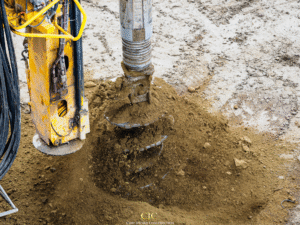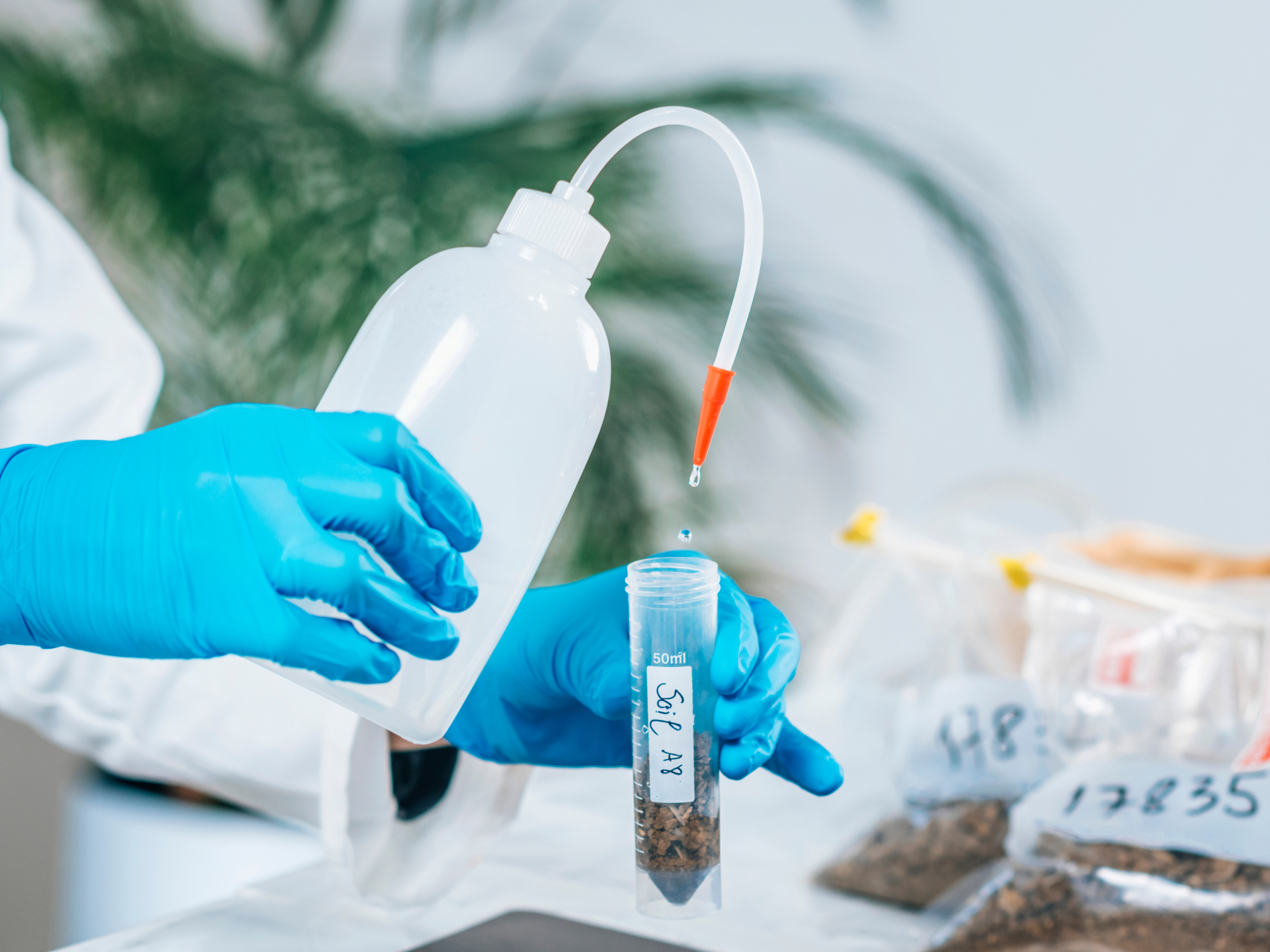When meeting with any builder, a common phrase brought up is a “soils test”. This commonly done test is to verify what types of soil are in your specific build area. But, what is a soils test? And why might you need one?
This test allows engineers and builders to make sure that the ground beneath the proposed project can hold up the foundation that is planned. In Colorado, we have many different types of soil, and not all of these are very good at holding up a building. Some even expand and push up against the structure. We at Joyner Construction hire a reputable, licensed, and insured soils testing company to come out and check your soils so that we can give you a solid foundation to your building.
What does a soils test look like?

Well, generally, the company comes out with a large truck (think a Ford F-350 or similar) that has a small drilling rig carried in the truck bed. That drill rig then drills a hole about six inches in diameter down into the ground as far as it can go, either until it hits an obstruction like bedrock or until it reaches maximum depth to collect the samples.
This maximum depth can vary but the soils test contractors we use typically go down approximately 20 feet. These bore samples are then sent to a lab for comprehensive testing to see what the soil is specifically made of, or its composition, in that area. The soil composition tells the engineers what the bearing capability and expansion characteristics of the soil.
The lab takes that information and creates a report that is sent back to the soils testing company. They compile this information along with any other factors like historic information from the area, and present it back to us with their recommendations as a licensed engineer. We then provide that information to the foundation engineer and discuss with them what specific foundation we can use, and if any special requirements are needed to ensure the project is solid.

These tests are important because expansive soils are a common issue in Colorado. Our location in the Front Range has varied soils from granite bedrock, to silt and sand, and clay soils. The clay especially likes to expand and contract with moisture and temperature changes, making foundations tricky to install if not tested for and addressed properly. If you see a house with diagonal cracks along the concrete foundation, many times it is because of an issue like this, and these tests help mitigate these problems.
However, as you can see with all of the buildings along the Front Range here in Colorado, builders and engineers have worked out many solutions to address these unique soil conditions. Our teams of licensed engineers and testers are ready to make a foundation that will support your project for years to come.
